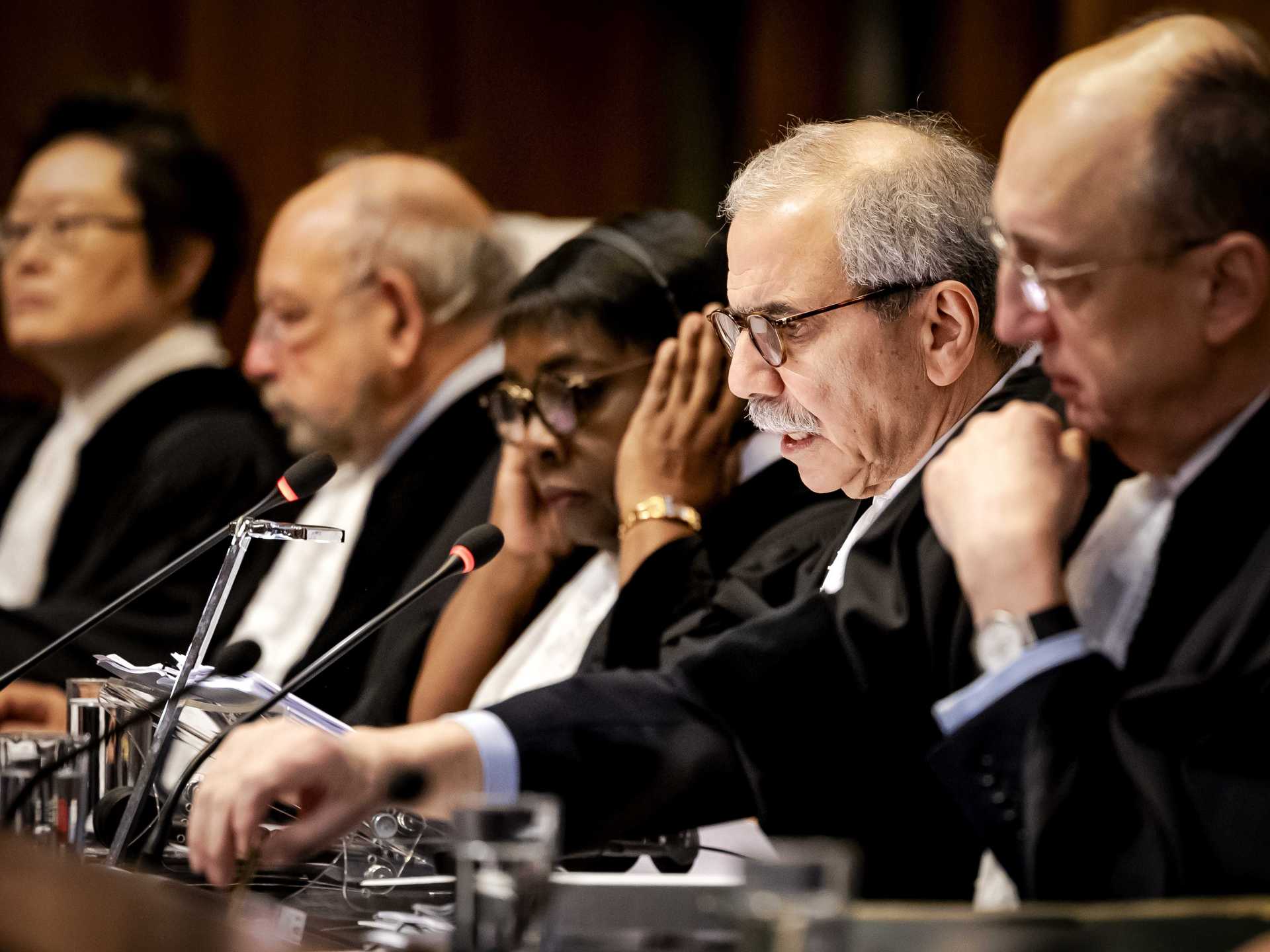Court of Justice judges continue hearings in the case related to the consequences of the Israeli occupation (European)
The United States defended Israel during a hearing before the International Court of Justice on Wednesday, urging the court not to oblige the Israelis to carry out any immediate withdrawals.
The US representative to the court, Richard Visek, said: “The Court of Justice should not conclude that Israel is legally obligated to withdraw immediately and unconditionally from the occupied territories.”
He added, "Any move toward Israel's withdrawal from the West Bank and Gaza requires consideration of Israel's actual security needs."
The American official’s speech came within public hearings held by the International Court of Justice based on the resolution issued by the United Nations General Assembly at the end of 2022, which asked the court to issue a non-binding “advisory opinion” on “the legal consequences arising from Israel’s policies and practices in the occupied Palestinian territory, including Including East Jerusalem.
52 countries expressed their opinions during the sessions that began the day before yesterday, Monday, and will continue for a week.
The Palestinian side stressed in its statement that the Israeli occupation is a colonial regime that practices apartheid.
Most of the countries that have expressed their opinion so far called on Israel to end its occupation of Palestinian territories, but the United States defended Tel Aviv.
Israel will not participate in the hearings, but submitted a text dated July 24, 2023 urging the court to decline to issue an opinion on the case.
United States Representative Richard Visek (Anatolia)
Visek referred to the ongoing Israeli war on Gaza for more than 4 months, saying that what is currently happening reinforces "the determination of the United States to urgently reach a final peace."
He added, "Negotiations are the path to lasting peace."
For his part, Palestinian Foreign Minister Riyad al-Maliki said that the American official’s intervention is not new and that it is “more political than legal,” and confirms “the weakness of the American position regarding what is being discussed here at the International Court of Justice.”
Al-Maliki pointed out that Washington insisted that the Israeli-Palestinian conflict be raised “in other forums and not here,” and added, “We have tried for 75 years to obtain this path through negotiations, and the Israeli refusal through the American veto has always obstructed several United Nations resolutions, and that is why we came to the Court of Justice.” International".
On the other hand, French representative Diego Colas said that "any form of territorial annexation, even partial, cannot be recognized under international law."
Colas affirmed France's continued support for the "two-state solution through negotiations," calling for the relaunch of the settlement process in a "decisive and credible" manner.
Israel is facing increasing international legal pressure as a result of the devastating war it has been waging against Gaza since last October, which made it accountable for the first time before the International Court of Justice on charges of committing genocide against the Palestinians in a case brought by South Africa.
The court issued a decision on January 26 obligating Israel to take “temporary measures” to protect the Palestinians in Gaza until the content of the case is decided, and also demanded that it comply with the Genocide Convention.
Source: Al Jazeera + agencies

